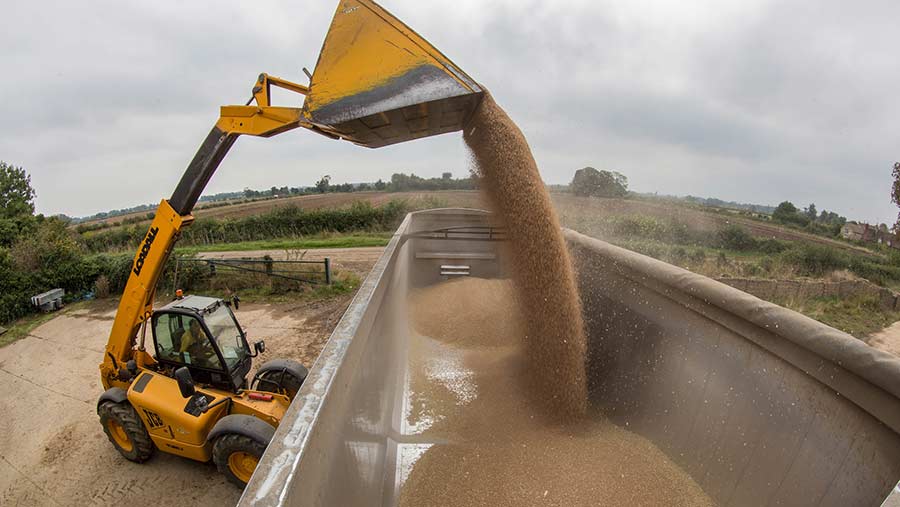Wheat markets recover with Black Sea grain deal under pressure
 © Tim Scrivener
© Tim Scrivener Poor crop conditions for US winter wheat, as well as building tensions surrounding the Black Sea grain deal for Ukraine have triggered a £20/t recovery in feed wheat prices in recent weeks.
The current grain export deal between Russia, Ukraine and the United Nations is due to expire on 18 March, and while another extension is likely to be agreed, it is still to be signed.
See also: Find all our grain price information in one place
May 2023 UK feed wheat futures opened at £244/t on 15 February, up £4/t on the week and up more than £20/t since the low point in late January.
Ex-farm feed wheat spot prices collected by Farmers Weekly averaged £232.70/t on 15 February, an increase of almost £7/t on week-earlier levels.
In the UK, domestic demand remains fairly weak, but UK exports are still competitive and there is a level of export demand for both milling and feed wheat, according to grain trader Cefetra.
Zoe Andrew, grain trader at Frontier, said January was a pretty negative month for wheat markets, and it felt as if there had been a bit of a change of tune for February.
Global picture
“Markets have started to refocus on the weather, US crops went into the autumn not in great shape, and a fair bit of the US is still in drought. So, as those crops start to come out of winter dormancy and it starts to warm up in the US, the market is focusing on that again,” she said.
Ms Andrew stressed Ukraine remained as a major factor, but it wasn’t going to be a significant producer of wheat this year compared with when the conflict started.
“There is no reason to believe it [the trade corridor] won’t be renewed, but at the same time there is still a deadline and there will still be some speculation as we build towards it,” she added.
Figures from Ukraine’s agriculture ministry show grain exports out of Ukraine are down by 29% for the 2022-23 crop year to date.
Despite this, the presence of significant tonnages of Ukrainian grain accumulating in bordering countries, such as Poland and Romania, have had an effect on local markets, filling up stores and driving down prices.
As such, the EU Commission is considering tapping into its crisis reserve to help farmers in these regions.
